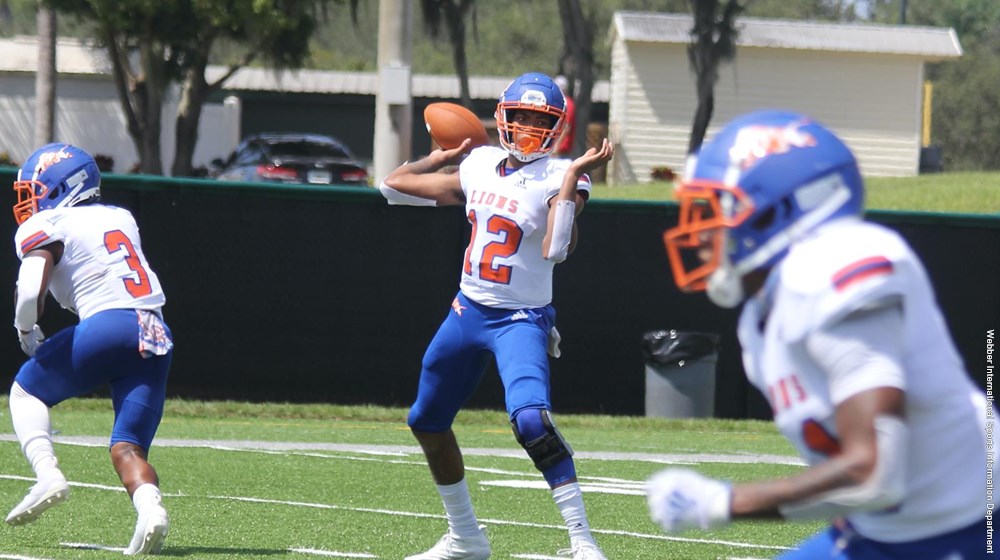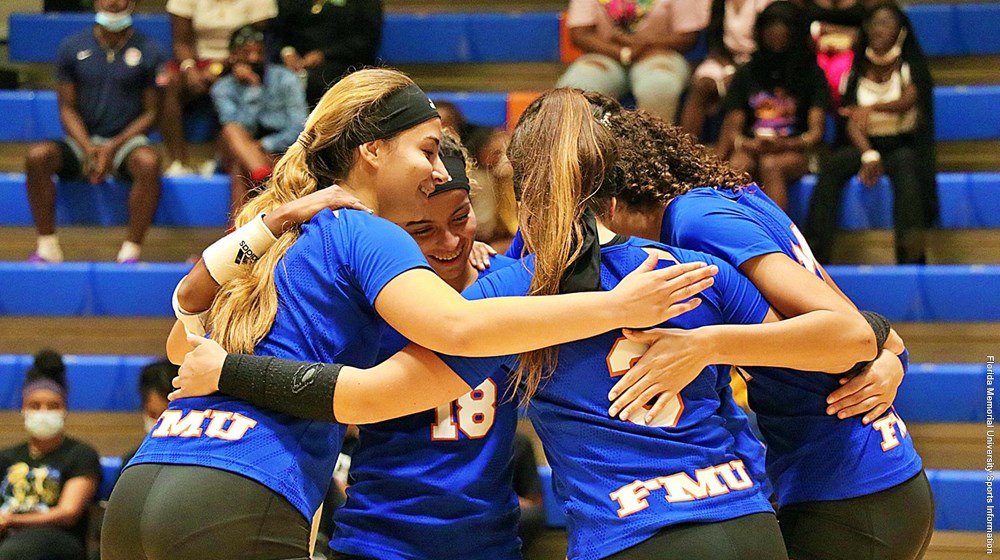Florida Memorial University is currently on an island as far as holding athletic events is concerned.
Despite a coronavirus pandemic that brought sports to a jolting halt for much of the spring and summer months as the government and health officials attempted to orchestrate a best practice approach to handling a novel virus that has impacted millions and killed several hundred thousand in seven months, Florida Memorial — a small private school in Miami Gardens — decided to solider on instead.
FMU was bringing back football for the first time in 61 years. It was going to be the crown jewel of a revitalized athletic program in the unheralded NAIA level.
The reason for optimism, said athletic director Earnest T. Jones, was because of the social and cultural impact athletics, particularly football, has on the surrounding community.
“It’s a new day, and Florida Memorial University will become the global university academically and athletically that others will want to mirror,” said Jones back in May.
While the SWAC, MEAC, CIAA and SIAC had all shut down operations until the spring with the hopes the coronavirus would slow in the fall and winter, Florida Memorial ramped up training sessions for all 12 of its on-campus sports.
They would be the only HBCU participating in sanctioned games with little restrictions.

Florida Memorial underwent a risky experiment
This ambitious outlook was made possible by Gov. Ron DeSantis, the headstrong Republican who brazenly invited all collegiate and professional sports to make Florida its new home when states north and west of it decided to hold such events — regardless of how small or well-planned — was too risky.
The state was open for business. Bubbles were created to keep the spreading plague away. And the MLS, NBA, and WNBA ventured into their insulated domains.
But just days into the fall semester, the university was met with its first COVID-19-related challenge. In mid-August, six members associated with the athletic department had tested positive for the virus out of 267 individuals sampled.
Though none of the cases were serious, the development affirmed that battling COVID-19 would bring about setbacks.
“We do expect and know that COVID is out there,” Jones told HBCU Sports. “It’s very serious to us.”
FMU was under the impression it could pull off a season safely without many interruptions because its league — The Sun Conference — would be playing a nine-game conference-only football schedule where all opponents reside in Florida.
The longest trip FMU would travel for a game was just under three hours. Its shortest trip of the season is a 10-minute journey.
“That’s one of the reasons we thought we could play,” said Jones. “You listen to the coaches and the athletes and they wanted to play. We listened to their voices as well.
“We didn’t want to sit around as administrators and make a decision without listening to what they had to say.”
What also factored into the decision to move forward were all the safety protocols established by the school to avoid a large-scale outbreak.
That included daily symptom questionnaires, daily temperature checks, emphasis on sanitization, and a fine system for athletes not seen wearing face-coverings on campus or in athletic facilities.
Athletes, explained Jones, are tested once every three to four weeks, an initiative not required by the NAIA or The Sun Conference. If athletes wanted additional testing, they are encouraged to visit the school’s campus coronavirus testing site.
“We’ve put in place a lot of different things that could keep us protected throughout the day,” he said.
Much of the conversation surrounding the return to sports amid a global pandemic has been whether athletes would be potentially exposing themselves to long-term health effects if infected with COVID-19.
After all, hundreds of athletes had contracted the virus shortly after campuses throughout the nation opened in the middle of summer.
On Aug. 11, just days before FMU held its first official on-field fall football practice, the Big 10 and Pac-12 promptly decided to cancel all fall sports after both conferences were made privy to information from medical experts that revealed athletes risked developing myocarditis, an inflammatory heart condition associated with a COVID-19 infection.
Relying on consultation from medical experts and health officials, Florida Memorial said it conducted testing on athletes and coaches that included heart and brain scans to determine what risk factors existed among each individual prior to making a final decision.

Staving off the virus and athlete-led allegations
The first three games of the Florida Memorial football season were completed without a hitch, record aside. There hadn’t been a known positive test since the initial August survey, either. But as America and the world have come to learn, COVID-19 will not leave all unscathed. FMU was no exception.
The school announced last week that its Saturday game against St. Thomas University was being rescheduled to Nov. 21 due to “COVID-19 related concerns,” a press release stated.
When questioned whether the postponement had anything to do with positive tests on either side, Jones referenced the brief press release published on the school’s athletic website.
“These are challenging times and we have to remain flexible in our scheduling,” said Jones.
Those burdens continued in earnest with a report published by HBCU Game Day that chronicled allegations the athletic program was actively hiding COVID-19 infections and compromising player safety.
Through interviews with several sources within the program, FMU was accused of forcing athletes, particularly the volleyball team, to compete in an environment that led to an infection. Another claim surrounded an athletic department employee who tested positive late last month.
The employee said the athletic department was failing to adhere to safety protocols. Other athletes cited in the report indicated that the school was withholding the true number of infections.
Jones on Tuesday denied the allegations, saying the athletic department is legally unable to name individuals who might have been infected with COVID-19. In the event someone tests positive, that athlete is directed to university student affairs, or human resources if that person is an employee.
“You’re not running around and writing letters to put on a website, giving people’s names or someone who has COVID,” said Jones in response to the report. “That’s against the law. What we do is send out communication within the (athletic department) and tell them (school administrators) we have had a positive case. That communication goes out every single time we have a positive case.”
Jones, in a candid tone, was clear that the athletic department always has followed CDC guidelines with respect to safety recommendations.
“I would be a terrible leader if we didn’t follow them,” said Jones, who revealed that he authorized the athletic department to shut down on at least two occasions since the pandemic began. “We are living in a national pandemic right now. We believe in transparency and the health and wellness of our student-athletes.”
‘Let’s listen to the people’
Ultimately, Jones and FMU knew there would be no guarantees forging ahead during a widespread health crisis. The risks were apparent. There were plans in place to navigate them. The games — like life — has gone on despite calls to refrain from seeking normalcy.
“We still have to live life. Life still goes on. Things that happen in everyday life still have to happen,” said Jones. “You can’t put us in a corner or in a box for the rest of our lives. This is what we have to do. You can see it right now. The big schools are rescinding their decisions and they’ve come back.”
While the athletic director understands the concern for those between the white lines, Jones is sure every measure has been taken to create the best possible outcome for all participants.
“People want to see sports. The athletes want to play sports. The coaches want to coach,” he said. “The community wants to see sports. So I say, let’s listen to the people. We’re dealing with a pandemic. We have to protect ourselves and understand that.”








Comments 2